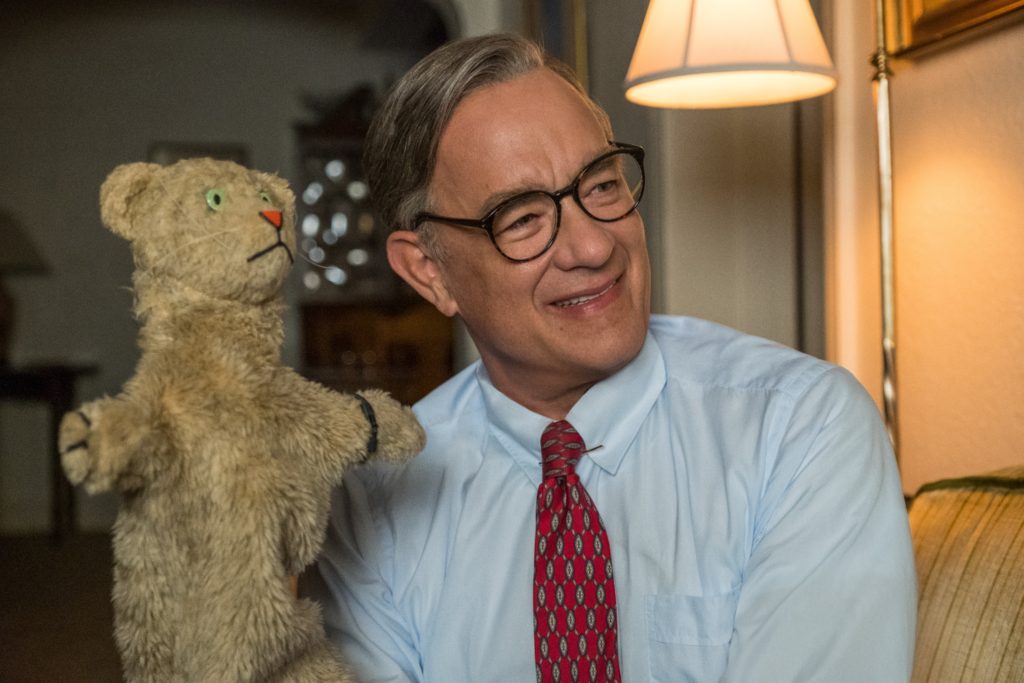Marielle Heller’s “Can You Ever Forgive Me?” was nominated for three Academy Awards in 2019. Heller’s 2015 directorial debut, “The Diary of a Teenage Girl,” won Best First Feature at the Film Independent Spirit Awards. Her TV directing credits include “Transparent” and “Casual.”
“A Beautiful Day in the Neighborhood” will premiere at the 2019 Toronto International Film Festival on September 7.
W&H: Describe the film for us in your own words.
MH: This is not a biopic of Mister Rogers (Tom Hanks). It’s actually a character film that is more of an embodiment of how Fred Rogers interacted in the world and how his dedication to kindness permeated every aspect of his life.
It’s from the perspective of a cynical journalist, Lloyd Vogel (Matthew Rhys), who is assigned to write a puff piece about Mister Rogers, when he’s much more used to doing hard-hitting journalistic pieces. Somehow meeting Fred is exactly what he needs in his life.
W&H: What drew you to this story?
MH: The world is in need of kindness right now. I think we all feel that. I’ve realized that depending on what’s happening in the world, the type of art I want to make changes.
And for me, at this moment in my life, at this moment politically, I wanted to make a movie about a person who truly embodies deep thinking, compassion and inclusivity. And Fred Rogers was that person.
He dedicated his life to small genuine acts of compassion, and this movie shows how those small acts can change the lives of people around us.
W&H: What do you want people to think about when they are leaving the theater?
MH: I’d love it if anyone left with a new sense, or a new example of, positive masculinity. And that expressing our emotions is important — “anything mentionable is manageable”.
W&H: What was the biggest challenge in making the film?
MH: Well, first of all, we wanted to keep this all as authentic as possible so we shot a lot of the movie in Pittsburgh, in the actual stage that “Mister Rogers’ Neighborhood” filmed in.
We wanted to make sure the people who dedicated their lives to making the program felt like we were doing it right. When they all showed up to see our set, there were tears in their eyes, and we felt proud that we had recreated every detail with respect paid.
Outside of that, I’d say while Tom Hanks is obviously America’s favorite man — and mine, personally — he’s actually very different from Fred and that was something we took on together. It was a really, really fun challenge to get him to take his time in the way Fred does, instead of Tom’s usual being state of kind of a fast-paced storytelling.
Fred was very, very slow. He left a lot of space for real understanding. We had a great time facing that challenge and I think he succeeded masterfully — as ever.
W&H:How did you get your film funded? Share some insights into how you got the film made.
MH: This script started with Noah Harpster and Micah Fitzerman-Blue, who were inspired by Tom Junod’s “Esquire” article and spent many years developing the script. They brought the script to our producer, Youree Henley.
Henley took it to Peter Saraf, Leah Holzer, and Marc Turtletaub at Big Beach, who loved it and brought it to me. Once I was onboard I approached Tom and when he had signed on, we brought it to Sony/Tristar Pictures.
W&H: What inspired you to become a filmmaker?
MH: I never really set out to become a director. I was writing “The Diary of a Teenage Girl” and the thought of someone else directing my movie was more than I could handle.
So, I applied to the Sundance Labs in hopes that I could figure out how to direct before I made it.
W&H: What’s the best and worst advice you’ve received?
MH: The best advice was from writer-director Gregg Araki, who was one of my advisers at the Labs. He said that you don’t call action until you love everything happening in the monitor. That gave me the license to be really honest about what I like and don’t like and be clear in my direction.
The worst advice I got was, “If you’re going into the arts, have a good backup plan.”
W&H: What advice do you have for other female directors?
MH: Appreciate those who came before you. Learn what they went through and recognize that because of them, and only because of them, you can be seen and welcomed — and sometimes even respected.
W&H: Name your favorite woman-directed film and why.
MH: There are so many. I love “The Kids Are All Right” by Lisa Cholodenko. She was also an adviser of mine.
W&H: What differences have you noticed in the industry since the #MeToo and #TimesUp movements launched?
MH: More conversations overall about feelings, more dialogue, and maybe also more fear. The conversations and the awareness are probably the biggest difference I’ve seen. I think it’s an exciting time.







